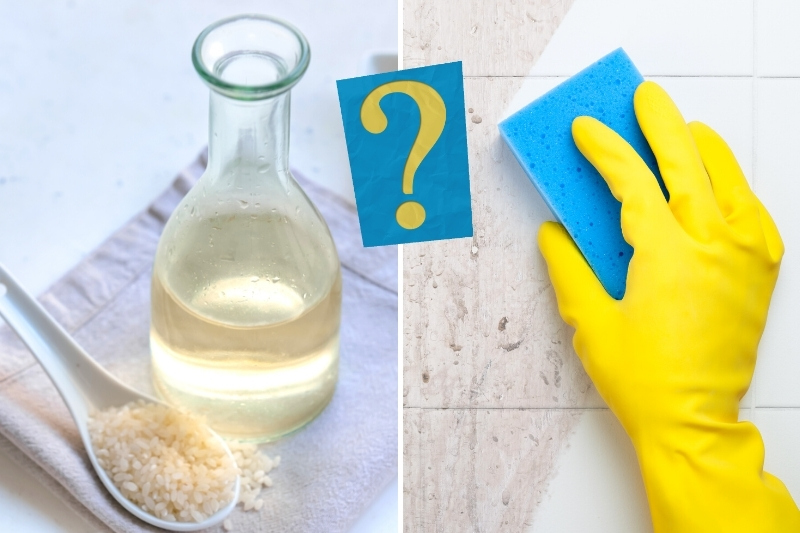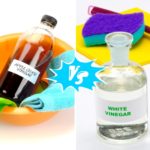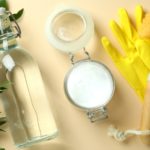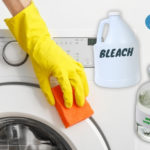In the world of cleansing condiments, vinegar is right at the top. Its ability to cut through stains and mess is immense, and it does this in a natural and benign fashion that leaves chemical cleaners fuming.
Vinegar isn’t limited to the malted stuff you chuck on your chips. There are vinegars of all kinds of provenance and nature that perform different functions in both the culinary and cleaning world.
Among these is rice vinegar. What is it? Can cleaning with rice vinegar get rid of unsightly stains? Or should it be put firmly back in the ingredients cupboard to await the next stir-fry? Let’s see.
What Is Rice Vinegar?
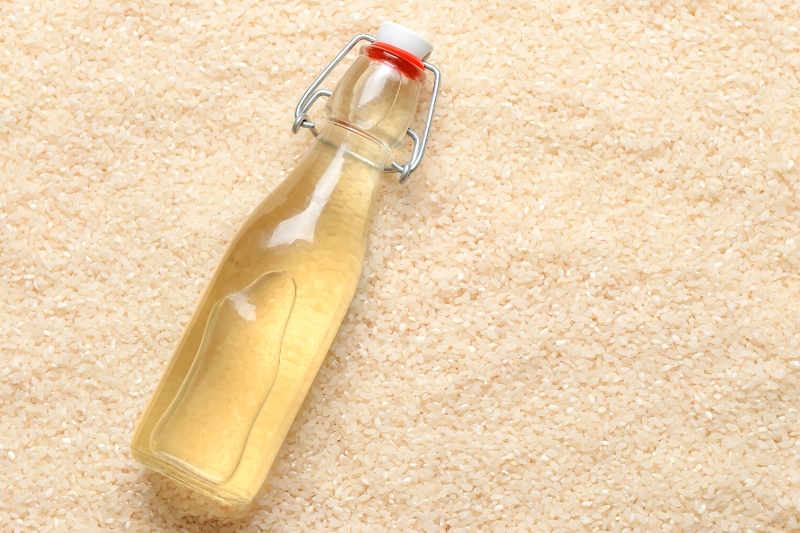
You may be surprised to know that it’s made from rice. No? OK, then, try this: it’s made from fermented rice, the liquor from which is fermented again to make acetic acid. This boozy-sounding origin explains why it’s sometimes called rice wine vinegar.
Can you use any kind of rice? While it’s unlikely you’ll get much joy from a sachet of microwave rice, most types of rice can be made into rice vinegar.
White rice vinegar is the most widely used, having a gentle character, and is often put in sushi to give it a soft taste kick.
When brown rice is used, there results a more nutrient-rich vinegar. Black rice gives a deeper, somewhat smoky result, while red rice…
What’s that? You’d rather hear about the cleaning power of rice vinegar, thanks all the same? Alright, keep your lid on.
Is Rice Vinegar Good for Cleaning?
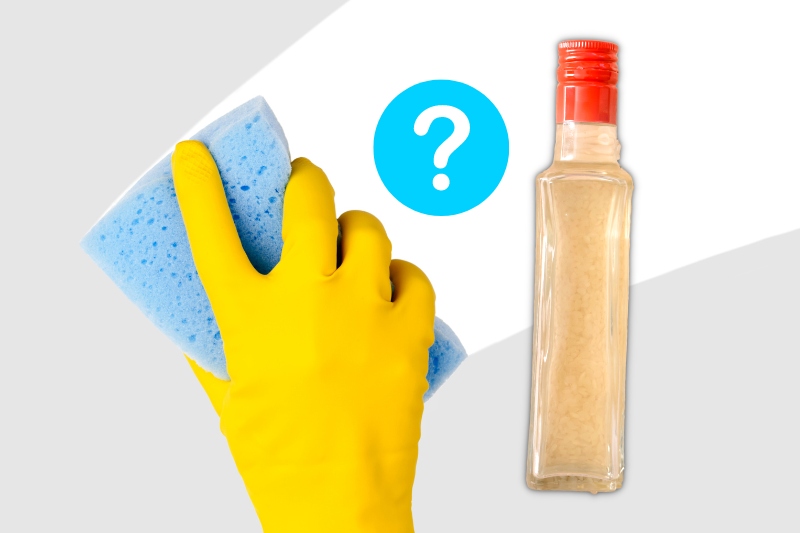
Well, yes and no. You can certainly use it for cleaning but you might not always get quite the results you were hoping for.
White vinegar is usually better than other types of vinegar for cleaning. If you’ve got a stain needing sorting or a patch needing primping, white vinegar leaps into action with aplomb.
Given its colossal cleaning capability, white vinegar makes other kinds of vinegar seem a little underwhelming.
However, one major advantage of rice vinegar is that although it doesn’t clean like white vinegar, it doesn’t smell as strongly of, well, vinegar.
White vinegar does get the job done, but it can really make the room smell as sharp as a Sarson’s bottling plant. You can of course add a few drops of essential oil to help with this, incidentally.
Regardless, let’s break down the cleaning caper into a few different areas.
Cleaning Surfaces with Rice Vinegar vs. White Vinegar
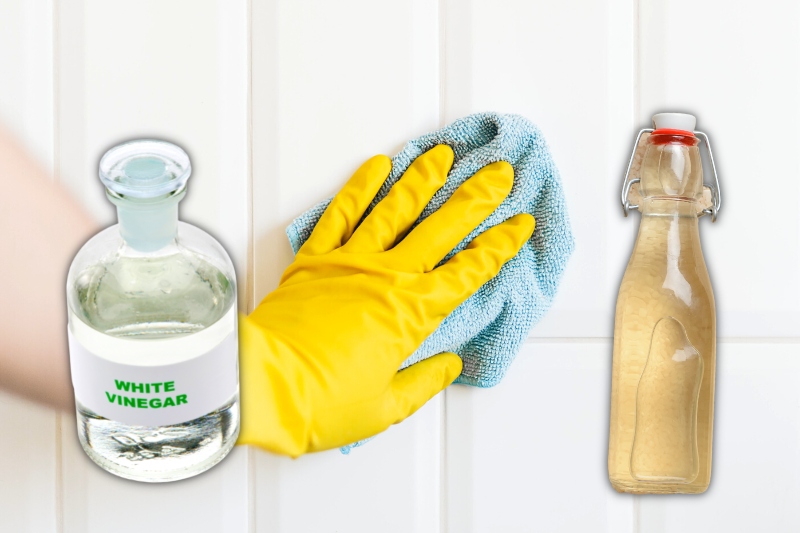
Rice vinegar can absolutely be used to clean surfaces in the kitchen and bathroom and delivers all the non-toxic benefits other vinegars do. Mix one part rice vinegar with one part water and you’ll definitely get results.
Rice vinegar has a lower acid content than most other vinegars, so won’t be quite so powerful in its anti-mess action. White vinegar has consists of about 5% acetic acid, whereas in rice vinegar the acid content is just 4%.
Most food-based stains, such as coffee and gravy, will eventually succumb to rice vinegar’s onslaught, but it may take a little more rubbing to see those unclean interlopers off the premises.
There might be a trace of residue where the vinegar’s been applied, in which case a quick wipe-off will take care of things.
Alternatively, use a weaker solution in the first place. The residue comes from the sugar that rice vinegar has dissolved within it, which results in a touch of sweetness on the palate. Sorry, back to the cleaning.
You can use rice vinegar in much the same way you use white vinegar. So, where you might mix white vinegar and bicarbonate of soda for extra cleaning power on stubborn stains or to freshen drains, you can do the same thing with rice vinegar.
You might not get quite the va-va-voom that white vinegar gives, but it’ll still pack a punch, albeit a smaller one.
Of course, while a lower level of acidity might mean slightly less cleaning oomph than white vinegar, it does mean that rice vinegar is excellent for surfaces that are a little more vulnerable to acid wear.
Please note that some items and surfaces shouldn’t be cleaned with vinegar. Make sure what you’re cleaning can be safely cleaned with vinegar first!
Using Rice Vinegar in Laundry
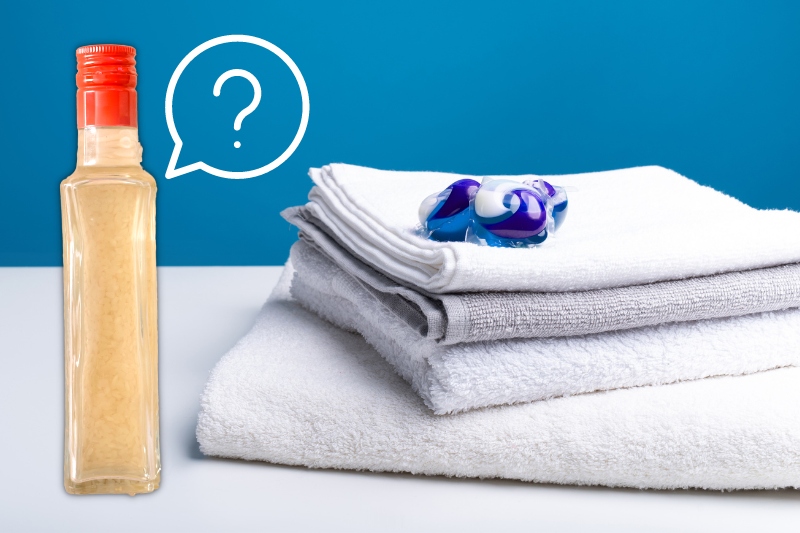
This is where it’s really possible to come a cropper. Rice vinegar has the potential to stain items because of its colour (usually an off-white).
If you’re really stuck and you have nothing else to hand, you could give it a go, but be prepared for trouble. Definitely don’t use it on whites is the best advice.
If you do use it and find it’s gone and stained your best white shirt, ammonia, oxygen bleach or washing-up liquid should be applied.
Cleaning Carpets with Rice Vinegar
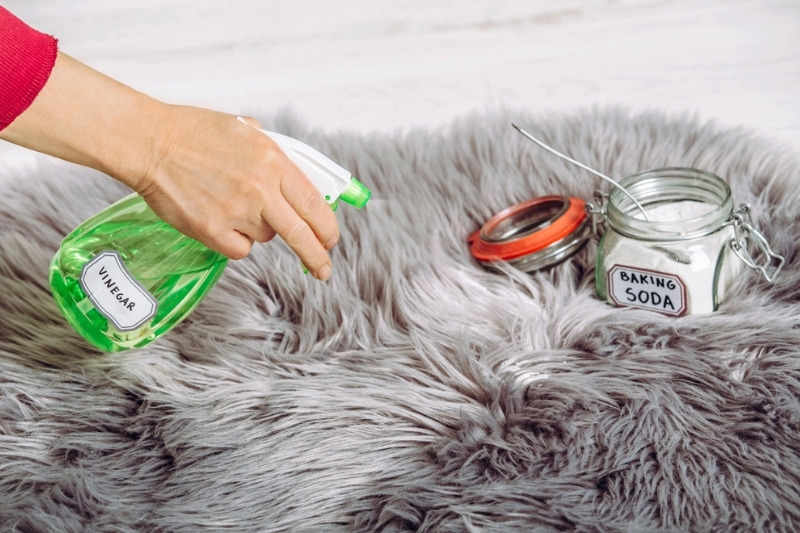
Caution should be used here. On a coloured carpet, you should be OK, but a very light carpet might be much happier with white vinegar.
If you do decide to go ahead, you can use rice vinegar to work on a stain by first applying bicarbonate of soda paste, then pouring on half a cup of diluted rice vinegar. The fizzing that ensues should send that stain packing. Dab the resulting wet patch with a paper towel then leave to dry naturally.
Using Rice Vinegar on Food
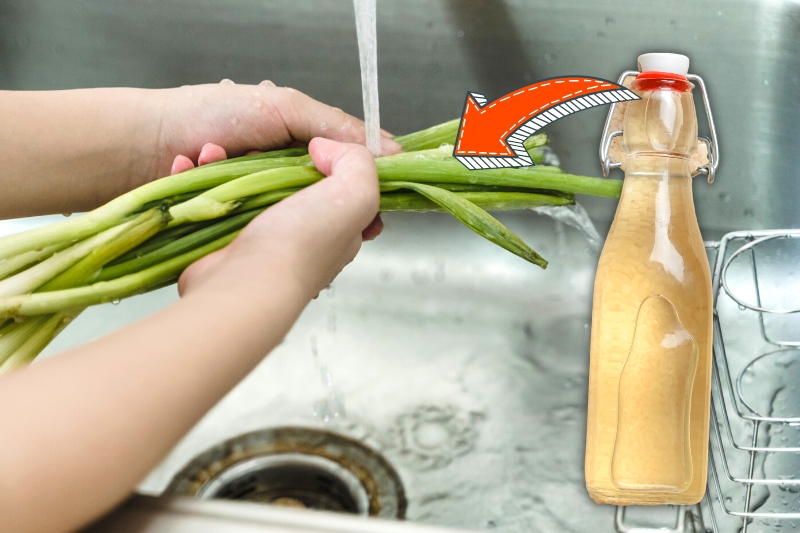
No, wait, I’m not about to talk again about how it tastes. Instead, what I’m on about is what it can do to get your ingredients clean in the first place.
If you’ve got extra-dirty veg because you subscribe to an organic delivery or you like to grow your own, a solution of rice vinegar is ideal to get your swedes spotless and your leeks lovely.
It’s much better than water alone at getting your veg clean, and, because of its gentleness, it won’t impart any flavour.
Other Uses
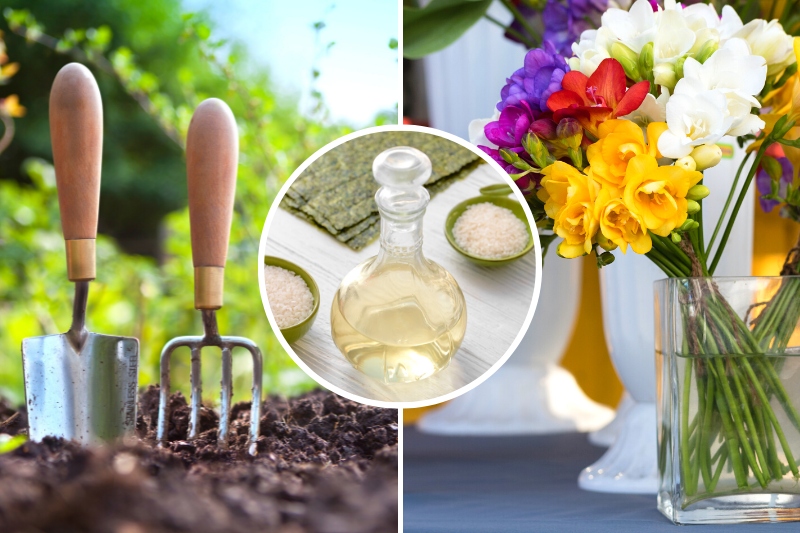
Just as with other vinegars, the range of uses for rice vinegar is extraordinary. To take one area as an example, this is a list of the things you can do with it in the garden.
You can use it as a weedkiller, as a soil acidifier for ericaceous plants, as a wasp sting treatment, and as a pest control spray. And then when you’ve picked some lovely blooms for your lounge, you can keep them fresh for longer by adding rice vinegar to the vase full of water.
Splash It On
Rice vinegar, at the end of the day, is vinegar, so can be a stalwart ally in the daily battle against household grime. There are nuances though, as we’ve seen, so care should be exercised, especially when using it for laundry purposes.
What might mitigate against its regular use is that it’s not what you’d call cheap (usually £2 or so for a tiny bottle). But, if it’s all you’ve got, and you’re in a pickle, it should usually suffice. Oh, it’s good for pickles too.

Martin’s life revolves around films, dogs and food, but rarely all at the same time. At least two out of these three like to give clothes and furniture a hard time, and Martin enjoys discovering and writing about new ways to stop them doing their worst.
